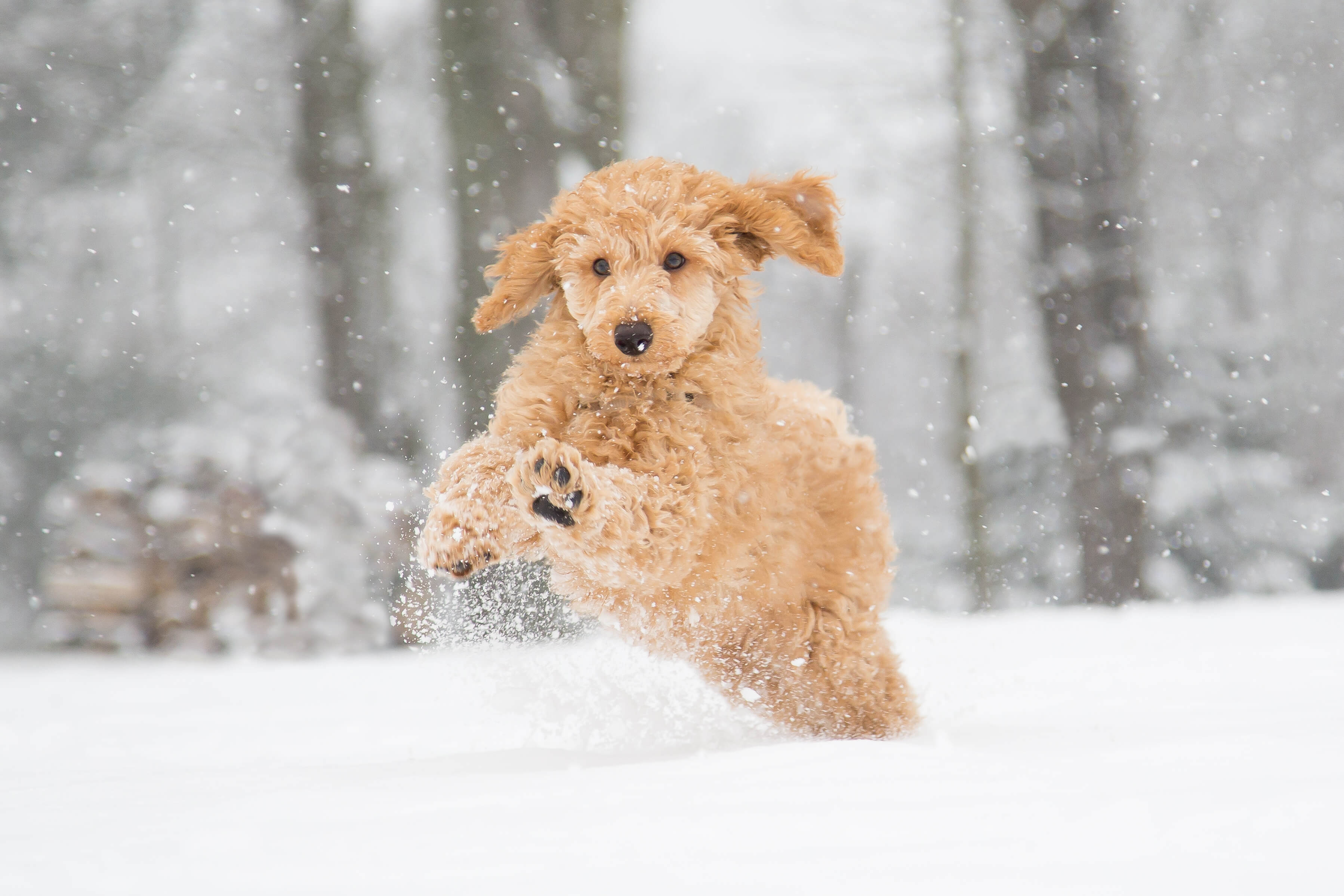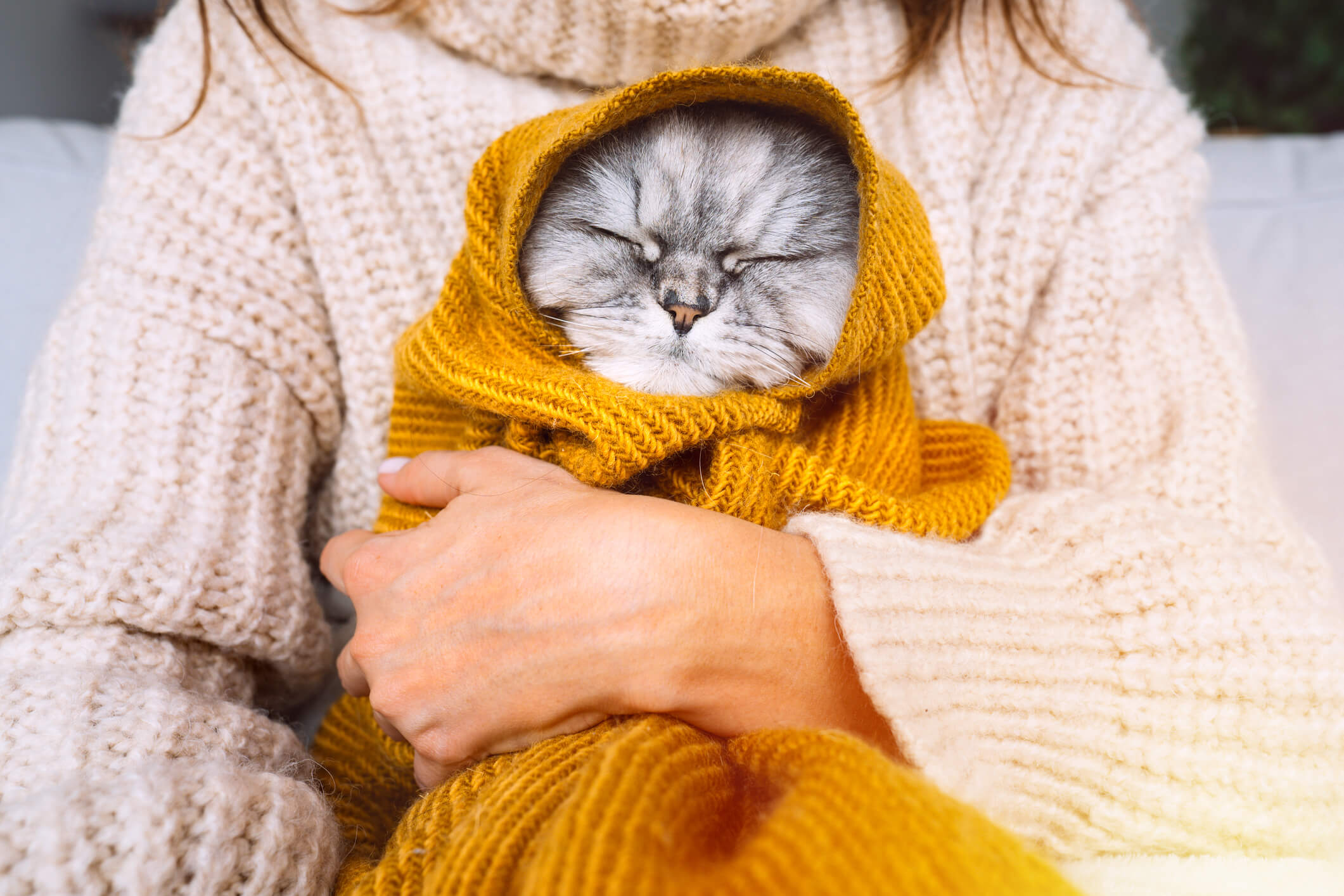
Cold Weather Dos and Don'ts for Outdoor Pets
Winter care for humans is simple. Slather on the lotion and put on a jacket when it gets chilly outside. But when it comes to our furry friends, pet owners are at a loss for how to guard against the harsh winter elements.
You might be surprised to learn that much of what we do for ourselves—blankets, moisturizer, winter boots, etc.—applies to our pets, too! Check out these dos and don’ts to help your pet thrive during the cold months.

How to care for pets during winter
Pet parents often associate winter with frostbite, dry skin and perpetual chilliness. A few simple habits can protect your pet from these winter hassles and help them enjoy frolicking in the snow!
Here are the main dos of winter safety that pet parents should follow:
- Do dress them in protective gear: Some dogs need jackets and booties when they go for a walk. Senior dogs, toy breeds and pups with short hair require a winter jacket because their bodies can’t generate enough heat to stay warm. Booties prevent salt and chemical deicers from getting lodged in between the toes, which can lead to redness and irritation. They also keep paws warm and guard against frostbite.
- Do wipe off their paws: Not every dog will tolerate wearing booties, let alone cats! That’s why owners should clean their pet’s paws when they return indoors. Antifreeze, sand, salt and deicers stick to their paw pads, causing dryness and cracks to form. What’s worse, many pets ingest these toxic chemicals as they attempt to lick their paws clean. Right when your pet comes inside, wipe off their paw pads with a warm, damp cloth.
- Do build a warm shelter: Owners should keep pets in the home during winter. But if your kitty insists on venturing outside, provide a warm shelter they can retreat to. This could be a tool shed or any other backyard structure that shields your cat from the wind. Block access to the garage so your kitty isn’t tempted to curl up on warm car engines. When they’re inside, give your pet a comfy bed with blankets and pillows. You might even consider placing a pet-safe heating pad underneath.
How NOT to care for pets during winter
Some owners accidentally contribute to their pets’ misery during winter. In most cases, they’re simply unaware of how taxing cold weather can be on four-legged companions.
Below are the main don’ts of winter to avoid:
- Don’t leave them outside: Many pet parents assume cats and dogs are built to brave the cold because they’re covered in fur. However, pets left outside for more than 20 minutes can suffer frostbite or hypothermia, the latter of which quickly turns fatal. Dogs should go in the backyard just long enough to do their business. Owners should keep outdoor cats in the home during snowstorms and cold snaps. If it’s too cold for you, then it’s too cold for them!
- Don’t trim fur to the skin: Dogs rely on their thick coats to stay warm, both indoors and outdoors. Trimming fur too short hinders their ability to retain body heat. The only exception is when the belly fur of long-haired breeds drags through snow and salt during walks. In that case, it’s acceptable to trim back the hair a little bit to prevent it from accumulating ice crystals and toxic deicers.
- Don’t bathe pets too frequently: Pets need fewer baths in the winter. Low humidity, salt and deicers can lead to dry, flaky skin. Shampoo strips natural oils from hair and skin, further exacerbating the problem. Alleviate your furry friend’s discomfort by holding back on the frequent baths. If you have to wash your pet, opt for moisturizing shampoos that contain oatmeal, because this ingredient soothes irritated skin.
- Don’t ignore antifreeze spills: Antifreeze is common in the winter because people need it to keep their cars running smoothly. Unfortunately, cats and dogs are attracted to the smell of this highly poisonous substance. They could lick antifreeze spills off the driveway or garage floor, resulting in an emergency trip to the animal hospital. Clean up spills right away and switch to a pet-safe antifreeze.
Winter presents many dangers for pets. These safety tips will help owners protect their pets from all winter woes, whether it’s dry skin or life-threatening hypothermia. If you’ve committed some of the don’ts mentioned here, focus on caring for your pet rather than feeling guilty about past mistakes. Your fur baby will love you even more for it!



